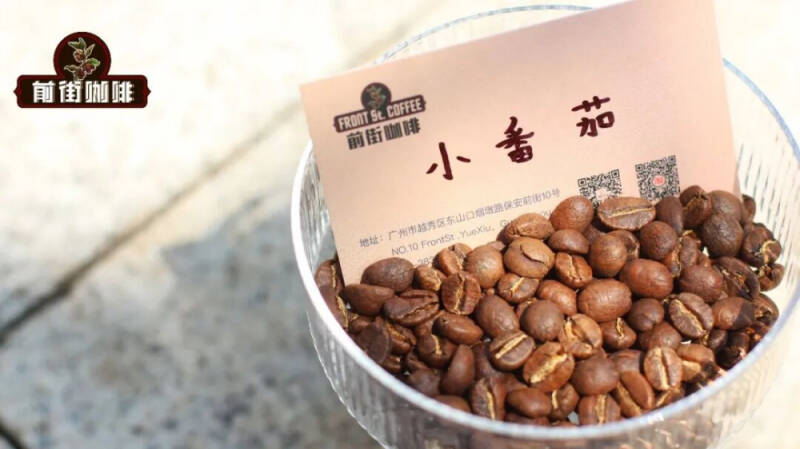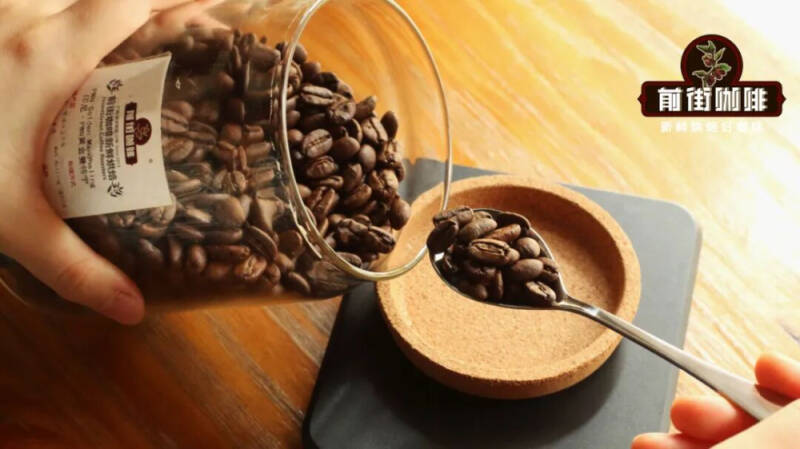Where are the most expensive Blue Mountain Rose Summer Mantinin coffee beans? How much does a cup of hand-brewed boutique coffee usually cost?
As the saying goes, you get what you pay for. Looking at many aspects of life, this sentence is reasonable, and it is also deeply engraved in our view of consumption.
Some time ago, a customer came to Qianjie Store to drink coffee. After reading the menu, he sighed: "What is that cup of emerald red label (75 yuan)? It is so expensive, it must be better than ordinary hand-brewed (30 yuan). Drink a lot." Obviously, this little friend has equated "expensive coffee" with "good coffee" and defaulted that "the higher the price, the better the coffee will taste." So, is this really the case?
What are the main factors affecting the price of coffee?
1. Variety
I believe everyone knows that the coffee beans currently on the market can be roughly divided into Arabica and Robusta.
Among them, there are many derivative varieties of Arabica, such as iron pickup, bourbon, kadura, etc. Most of them are planted at high altitudes of more than 800 meters. They have a mild taste and will show more good flavor due to different terroir environments. However, Arabica was born with higher requirements for the planting environment. Not only was the yield low, its ability to resist pests and diseases was still weak, and it even withered at any time. This made farmers need to invest more management costs to maintain it, and the corresponding selling price will be higher.
Robusta, on the other hand, is mainly planted in low-altitude areas below 800 meters. It is not only not afraid of pests and sun exposure during the growth process, but can also be planted intensively. It is also characterized by "large quantities and filling" during harvest, which also allows the beans to be distributed to more countries and widely used in raw materials for deep-baked Italian blends or instant coffee at relatively low prices.
2. Raw bean grade
No matter how high the price of coffee is or which extraction method is used, coffee beans are always an agricultural product. Even if they are agricultural products, each country will have corresponding grading standards. The higher the grade of raw beans, the more expensive the price will be. For now, the grading standards for green coffee beans around the world can be divided into three main categories: size, altitude (hardness), and flaw rate.
For example, Qianjie Kenyan tomatoes and Qianjie Colombia cymbidium are divided into sizes using specific types of screens. These countries believe that the larger the coffee beans, the better they will reach maturity, which in turn will have better flavor and make baking more uniform;

Central and South American countries such as Panama, Costa Rica, and Guatemala adopt a grading system based on altitude. Because the higher the altitude at which coffee grows, the harder and denser the beans will be, the more nutrients it absorbs, the more prominent the flavor will be, and the price will be higher;
Countries such as Ethiopia and Indonesia use the defect rate to classify raw beans. The lower the defect rate, the higher the relative value in the market. For example, Qianjie PWN Gold Mantonin and Qianjie Lindong Mantonin both belong to G1 level, and the former also uses 1 machine selection +3 manual selection to minimize the defect rate, make the particles more uniform, and the selling price will be more expensive than ordinary Mantonin.

In addition to the classification standards of production countries, some large estates also have their own classification systems. The most famous one is the Emerald Estate in Panama. All rose beans are divided into red labels and green labels, and the manor owner selects them separately from the red labels. The red label for a specific plot is more expensive than the green label. However, the bidding is mainly rare because of the nature of the auction.
3. Output
As the saying goes, rare things are valuable, and coffee is no exception. Take the Blue Mountains of Jamaica, which used to be known as the "Hermes in the coffee industry." In order to standardize the quality of Blue Mountain coffee, the Jamaica Coffee Board has designated an area in the Blue Mountain Mountains. It strictly stipulates that only the tinica coffee produced in this area can be called "Blue Mountain Coffee." The certified planting area is only about 6000 hectares, accounting for 1/3 of the entire Blue Mountain area.
The output of iron pickup trucks itself is low, and the planting environment is at a high altitude, so the output will be small and small. In addition, factors such as difficulty in picking and manual management costs, as well as Japan's later "fuel", the price of the Blue Mountains in Jamaica has continued to rise, exceeding thousands of yuan per cup in an era when cafes were not yet common. Of course, my country now has independent batches of Blue Mountain raw beans directly imported, and the prices have become relatively "people-friendly". For example, you can enjoy a classic Blue Mountain Hand-made punch for 60 yuan on Qianjie.
The price does not equal the quality of a cup of coffee
It is not difficult to see from the points listed above on Qianjie that the classification under industry-recognized standards makes the price of coffee beans different. However, in fact, for us consumers, the "good or bad" of a cup of coffee is not determined by the price, but depends on whether it suits our tastes.
There is such a regular customer on Qianjie. She usually prefers deep-roasted coffee, but suddenly one day she said she wanted to spend the luxury and try the golden label rose summer on the blackboard. Not long after the coffee was delivered on Qianjie, she looked troubled. Say: "It's so sour, I won't order it next time."
Different production areas, manors, varieties, treatments, grades, and degree of roasting will affect the flavor ultimately written on the packaging. When we buy coffee beans or order coffee, we will first choose according to our own preferences. Whether it is light roast or deep roast, they each have different price points: sour coffee includes people-friendly Yega Shefei, or the frighteningly expensive bidding rose summer; bitter coffee has expensive words such as Blue Mountain, and there are also affordable Brazilian beans. Therefore, Qianjie believes that there is no need to equate expensive coffee and good coffee. As long as you choose according to the type you like, you can find a "good coffee" that suits you.
Important Notice :
前街咖啡 FrontStreet Coffee has moved to new addredd:
FrontStreet Coffee Address: 315,Donghua East Road,GuangZhou
Tel:020 38364473
- Prev

What is the difference between a single flour bowl and a double flour bowl? Is 1 shot coffee a single espresso or a double?
When buying a coffee machine, a single powder bowl and a double powder bowl are usually included, so that we can switch between them according to different needs. The limited amount of powder used in a single bowl is 9 - 11g, which is used to extract a single serving of espresso; while the limited amount of powder used in a double bowl is 18 - 22g.
- Next

The shop assistant was angry after being refused to jump in line to buy coffee! Party concerned: Police have been reported
▲ Click to pay attention| Daily boutique coffee culture magazine coffee workshop recently, a video of "customers asked to jump the queue after being rejected angry shop assistants" on the Internet caused a large number of netizens attention and hot discussion. It is reported that the video that caused the uproar came from a Ruixing store in Hangzhou, Zhejiang Province. Through surveillance video can be clearly heard, Gu
Related
- What grade does Jamaica Blue Mountain No. 1 coffee belong to and how to drink it better? What is the highest grade of Blue Mountain coffee for coffee aristocrats?
- What are the flavor characteristics of the world-famous coffee Blue Mountain No. 1 Golden Mantelin? What are the characteristics of deep-roasted bitter coffee?
- Can I make coffee a second time in an Italian hand-brewed mocha pot? Why can't coffee be brewed several times like tea leaves?
- Hand-brewed coffee flows with a knife and a tornado. How to brew it? What is the proportion of grinding water and water temperature divided into?
- What is the difference between Indonesian Sumatra Mantinin coffee and gold Mantinin? How to distinguish between real and fake golden Mantelin coffee?
- What does bypass mean in coffee? Why can hand-brewed coffee and water make it better?
- Unexpected! Ruixing Telunsu lattes use a smoothie machine to foam milk?!
- % Arabia's first store in Henan opens into the village?! Netizen: Thought it was P's
- Does an authentic standard mocha coffee recipe use chocolate sauce or powder? Mocha Latte/Dirty Coffee/Salty Mocha Coffee Recipe Share!
- What is the difference between Vietnam egg coffee and Norway egg coffee? Hand-brewed single product coffee filter paper filter cloth filter flat solution!

